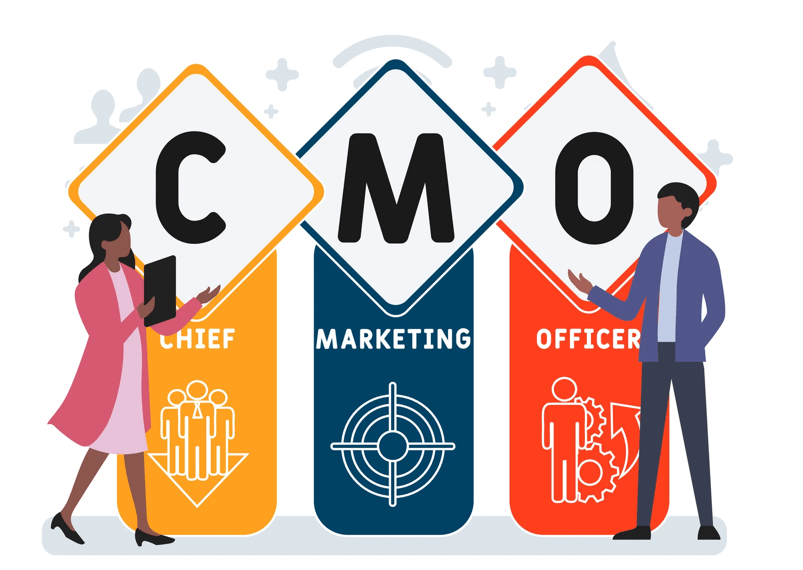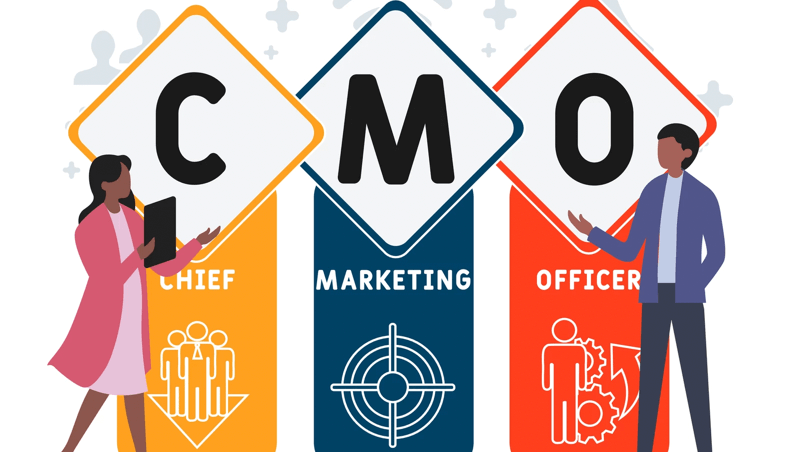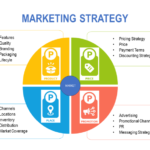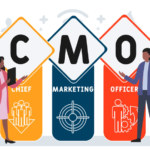What Does a CMO Do?
A Chief Marketing Officer (CMO) is a senior executive responsible for overseeing and guiding a company’s marketing strategies and activities. The role has evolved significantly over the years, from being primarily focused on brand management and advertising to encompassing a broader range of strategic functions. Here’s a breakdown of the core responsibilities:

- Strategic Vision: CMOs develop and execute comprehensive marketing strategies aligned with the company’s overall business goals. This involves setting long-term objectives, understanding market trends, and positioning the brand effectively.
- Leadership and Management: They lead the marketing department, which includes hiring, training, and mentoring staff. They also oversee budgets and allocate resources to various marketing initiatives.
- Brand Management: CMOs are responsible for maintaining and enhancing the company’s brand image. This includes developing brand guidelines, managing public relations, and ensuring brand consistency across all channels.
- Customer Insights: They analyze customer data and market research to understand consumer behavior and preferences. This information helps in tailoring marketing strategies and improving customer engagement.
- Digital Transformation: With the rise of digital media, CMOs need to integrate digital marketing strategies into their overall plans. This includes overseeing social media, content marketing, SEO, and online advertising.
- Performance Measurement: CMOs track and measure the effectiveness of marketing campaigns using key performance indicators (KPIs). They use this data to refine strategies and demonstrate the ROI of marketing investments.
Key Skills Every CMO Needs
To excel in the role of a CMO, individuals must possess a diverse set of skills:
- Strategic Thinking: A CMO must be able to see the big picture and align marketing strategies with the company’s business objectives. This involves setting long-term goals and adapting to changing market conditions.
- Leadership: Strong leadership skills are crucial for managing and motivating a marketing team. CMOs must inspire their team, foster a collaborative environment, and drive performance.
- Analytical Skills: CMOs need to analyze market trends, customer data, and campaign performance to make informed decisions. Proficiency in data analysis tools and techniques is essential.
- Communication: Effective communication is key to articulating marketing strategies, presenting ideas to stakeholders, and working with other departments. CMOs must be able to convey complex concepts clearly and persuasively.
- Creativity: Innovation and creativity are important for developing unique marketing campaigns and solving challenges. CMOs should be able to think outside the box and explore new approaches.
- Digital Proficiency: As digital marketing becomes increasingly important, CMOs must be well-versed in digital tools and platforms. Knowledge of SEO, content marketing, social media, and analytics is crucial.
- Financial Acumen: Managing budgets and understanding financial metrics is important for optimizing marketing investments and demonstrating value.
The Roadmap to Becoming a CMO: From Marketer to Executive
Reaching the CMO level requires a combination of experience, skill development, and strategic career moves. Here’s a general roadmap:
- Build a Strong Foundation: Start with a solid educational background in marketing or related fields. Gain experience in various marketing roles, from entry-level positions to managerial roles.
- Gain Diverse Experience: Work in different areas of marketing, such as digital marketing, brand management, and market research. This breadth of experience helps build a comprehensive understanding of the field.
- Develop Leadership Skills: Take on leadership roles, whether through managing projects, leading teams, or contributing to strategic initiatives. Demonstrate your ability to lead and inspire others.
- Pursue Advanced Education or Certifications: Consider advanced degrees or specialized certifications in marketing, business administration, or data analytics. These can enhance your credentials and knowledge.
- Network and Build Relationships: Establish connections with industry professionals, attend conferences, and engage in professional organizations. Networking can open doors to new opportunities and provide valuable insights.
- Seek Mentorship: Find mentors who can offer guidance, advice, and support. Learning from experienced CMOs can provide valuable perspectives and help you navigate your career path.
- Showcase Your Achievements: Demonstrate your impact through successful marketing campaigns, innovative strategies, and measurable results. Building a strong portfolio of accomplishments is key to advancing to executive roles.
The Future of the CMO’s Role in Digital Transformation
The role of the CMO is continuously evolving with advancements in technology and shifts in consumer behavior. Here’s what the future may hold:
- Emphasis on Data-Driven Decision-Making: CMOs will increasingly rely on data analytics to drive marketing strategies. The ability to interpret and act on data will be crucial for optimizing performance and staying competitive.
- Integration of AI and Automation: Artificial Intelligence (AI) and automation will play a significant role in personalizing customer experiences, streamlining processes, and enhancing campaign effectiveness. CMOs will need to leverage these technologies to stay ahead.
- Focus on Customer Experience: As customer expectations rise, CMOs will need to prioritize delivering exceptional customer experiences. This involves integrating marketing efforts with customer service and support.
- Adaptation to New Media and Channels: The emergence of new digital platforms and media will require CMOs to adapt their strategies. Staying agile and experimenting with innovative channels will be essential for reaching and engaging audiences.
- Sustainability and Social Responsibility: There is a growing consumer demand for brands to demonstrate social responsibility and sustainability. CMOs will need to address these concerns in their marketing strategies and communicate their company’s values effectively.




